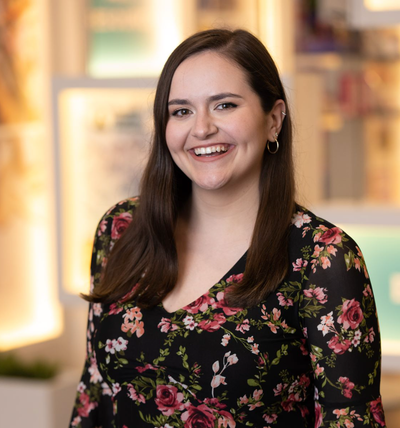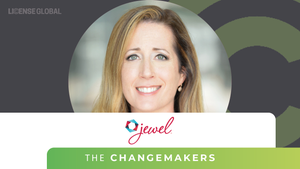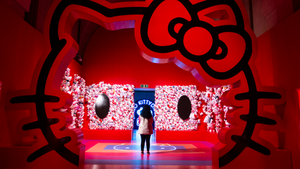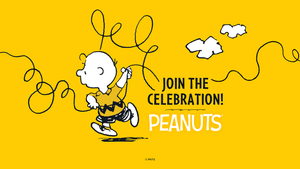Catalyst for Change: Genna Rosenberg
In our inaugural Catalyst for Change column, hear from Genna Rosenberg, chief executive officer, GennComm, and advisory board member for Women in Toys, Licensing & Entertainment, to learn how executives in the licensing space use their position in the industry to make change.
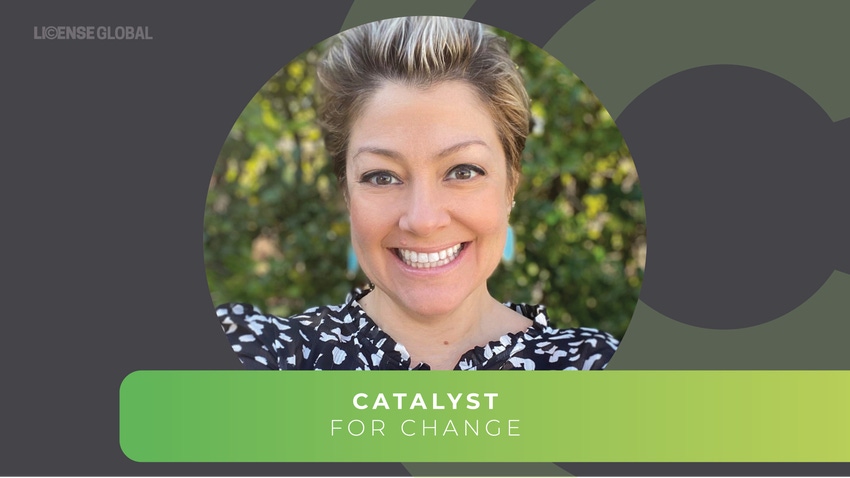
The licensing industry has global influence; consumers flock to buy the products the industry creates, and the revenue driven at retail is a substantial driver in a brand’s power to implement change. Some executives harness the power of their position to become what License Global is calling a catalyst for change, meaning that to create the change they want to see in the world, they are uncovering licensing’s potential as a catalyst.
To celebrate the initiatives and individuals behind change, License Global explores how the licensing industry is making an impact on sustainability and diversity and inclusion through a monthly insight column called “Catalyst for Change.”
For our inaugural column, Genna Rosenberg, chief executive officer, GennComm, and advisory board member for Women in Toys, Licensing & Entertainment, discusses with License Global her approach for implementing change, and how she thinks others in the industry can do it too.
License Global: Through your PR and marketing agency, GennComm, you have represented many licensed brands and their efforts to bring major awareness to their social impact initiatives. How do you do this and why do you think it’s a worthwhile venture?
Genna Rosenberg: I’m very inspired by brands who have huge fandoms and lean into the power of their scale to really make change. One of the earliest memories I have of a brand talking about that is Walmart after Hurricane Katrina. As they looked at the potential impact that they could make around sustainability, they could get there faster than anyone else and they could impose incredible guidelines that could really force companies to look at their footprints for sustainability. I ended up doing that work when I was at JAKKS Pacific starting their corporate responsibility program. When I started GennComm, I realized I was very passionate about guiding my clients on how they could create change and then telling the story about those initiatives. I think these things have to be organic, and it’s really motivating for consumers to align with brands that are impactful in helping the community.
You started a new division at GennComm called “Good Works x GennComm” focused on social-impact licensing and business development, to develop social innovation programming and licensing programs. How does this model work?
It’s going to look a little bit different for each of our clients. It’s all about social innovation. We want to be intentional about giving back, about helping our environment and being socially responsible citizens. We developed a proprietary business model that will really create a successful program, because we specialize in licensed consumer products. We’re helping our clients create mostly bespoke consumer product-driven campaigns, but there are all sorts of different campaigns that have a social cause tie-in. For example, we are working on CARE-eoke by Singing Machine. Singing is shown in studies to benefit mental health, and with the mental health crisis in the states after the pandemic, we’re looking to donate or sell machines to communities that could benefit from them, spreading the word of how karaoke can help with mental health. We’re in talks with a lot of different brands right now about this, and it’s very exciting. They’ve tapped me as their social-impact officer and we’re creating an entire division that looks at ways that we can create an impact with cause-related programs.
The social innovation consumer products industry is a $300 billion industry. Consumers of all ages are being activists with their pocketbooks. They’re putting their money where their mouth is, spending with good corporate citizens. If companies have an organic benefit that they can provide, by donating a portion of proceeds to charity, for example, then they have a higher chance of success.
GennComm ImaGENNation is GennComm’s product development and licensing think tank. You are developing a line of apparel and toy lines available for licensing in the mental health space. Tell me about this.
We recognize what’s going on in the mental health space along with different trends that are available in the toy space around fidgets and tactile products. I think there’s really an opportunity to provide tools that are discrete for people that might need to self-soothe or regulate their mindset. We created a line of toys and apparel, SENSEable, as a response to this. I want to create products that help people just as much as I want to create campaigns that help people. As we look at diversity and inclusion and how we can create products that are more inclusive, products like this are one of the ways that we can do that. We can look at product development from a different lens and provide products that make people’s lives easier. We can help a lot of people by being intentional about the products that we create.
You are also launching coursework to attract diverse young people into the licensing and toy industry, specifically with a social-impact lens. What is your goal with this initiative?
I went to the University of Maryland and studied journalism, public relations and women’s studies. It’s where I got my first taste of activism. Everyone that I know fell into the licensing industry accidentally. I think if we can lead with intention to attract young people into the licensing industry, a couple of things will happen. One, we’re creating livelihoods that can be fun, exciting and lucrative careers in an industry that they may have never thought of. Second, the industry would really benefit from people coming into it with a lens of social innovation and impact. For example, if you’re in product development but you’re aware of the crisis we’re having involving sustainability, then you can pick materials or packaging that’s part of the play. You can align with brands that are also centered on creating impact. The third thing is that this industry needs more diversity. It’s going to make everyone’s licensed products so much better if we have more representation. I think especially going into underserved communities is an important and tangible way that we can create a pipeline of brilliant, bright and diverse young talent. I spoke at career day at The University of Maryland and I talked to them about careers in the toy industry. I told them I was developing a course, and they asked me to teach that course. I’m teaching that course in The University of Maryland Harriett Tubman Department of Women, Gender and Sexuality Studies. I’m also working with several organizations in Los Angeles to provide that programming to high school students and underserved communities. I’m hoping to roll it out to more locations.
How can others in the licensing space make the change that they want to see?
I encourage all of my industry colleagues to use their unique vision, skills and resources to create social impact. Everyone has different resources. Some people have a big checkbook; some people can create marketing campaigns; some can create a licensed brand where they are in a position to allocate profits tied to purpose. It could really make a huge impact if every brand donated 1%, 5%, 10%, 25%. How amazing would that be if everyone held hands and made that happen? Imagine the change we could make. But even without those direct financial contributions, companies can make an impact in many different ways. It’s not one size fits all. I encourage everyone to look at what other companies are doing. Think about big and small ways that you can create the change that you want to see.
About the Author(s)
You May Also Like

